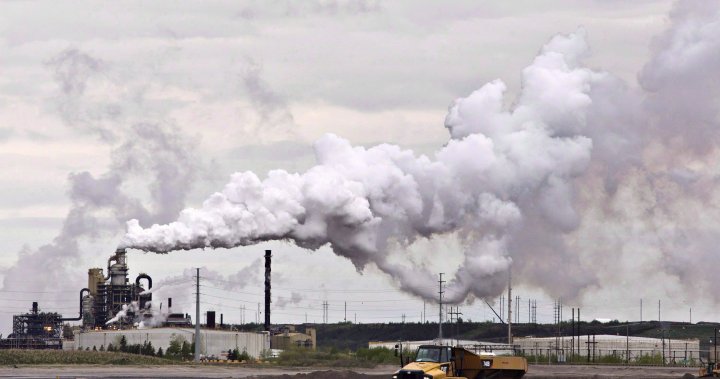For centuries the Lea has been a vital artery for London, carrying drinking water and grain into the city and servicing the factories and gunpowder mills that grew up along its banks. Rising in Bedfordshire, it flows for 46 miles through Hertfordshire and north-east London, eventually reaching the Thames. It’s often described as London’s second river, but this unsung tributary gets little of the glory or recognition of the Thames.
Since moving to Leyton (“settlement on the Lea”) several years ago, I’ve become familiar with the stretches alongside Hackney Marshes, but I found myself increasingly curious about what lay upriver. The Lee Valley park runs along a 26-mile stretch of the Lea. This scenic 4,000-hectare (10,000-acre) reinvention of former rubbish dumps, sewage works, gravel pits and factories was constituted nearly 60 years ago as a “green lung” for the city, and extended in 2012 to include the new Olympic Park. I decide to hike its length in an attempt to gain a fresh perspective on my part of outer London.
On an unseasonably warm February morning, my boyfriend Colin and I stand outside Ware station in Hertfordshire. The plan is to hike along its watercourses over two days down to Essex and north-east London, winding up at its endpoint, East India Docks. After a scoot around Ware’s historic streets, we find ourselves on the grassy bank, where the linear park starts. Our first leg is an easy six miles along the main canalised section, called the Lee Navigation. The Lea’s history is one of centuries-long alterations to make it more navigable, while the differing spellings refer to the natural (River Lea) and human-made (Lee).
As geese honk away, we follow the towpath lined by canalboats with names including Common People and Even Keel, skeletal trees reflected in the water. The sun casts impressive shadows under a succession of bridges as we pass locks and solo fishers, before reaching atmospheric Amwell nature reserve, home to wintering wildfowl.
An unpleasant whiff soon assaults our noses: “We were in the lungs,” quips Colin, “now we’re in the intestines.” He’s not wrong: a quick look at the map suggests a pongy waste management facility beyond the railings, so our pace quickens until we reach the picturesque Dobbs Weir. After negotiating a trickier section of path, we’re up on the raised banks of the New River canal, another of the Lea’s navigations, on a route down to Broxbourne village, our lunch stop. Here we pause at a shrine to a young Arsenal fan, the first of several touching tributes along the way to lives lost.
Just past Lee Valley Boat Centre is The Crown, popular with day trippers, where we scoff fish finger sarnies before rejoining the Lee Navigation for the seven-mile trek down to our campsite. A light breeze comes off the water at Silvermead, one of the Lee Valley’s few areas of wet grassland; cutely, it’s also a stronghold for water voles. Now narrowboats chug alongside us, while cormorants, taking flight, flap their wings noisily. As pylons yawn across the deserted landscape, we spy a canalside military pillbox, a reminder of the importance of the area during the second world war. More touristy attractions – the White Water Centre, Waltham Abbey, Myddelton House Gardens and Gunpowder Park – are regularly signposted, although time restraints mean a strict focus on our goal.
At Waltham Town Lock the sound of traffic heightens and we slip under the A121 past a group of youths on scooters and, nearby, boat owners tinkering away as the light drops. A boggy path alongside Stanstead mill stream is our ticket to the rear of Sewardstone campsite. It’s home to a range of accommodation options from tents and snug camping pods to indulgent lodges with hot tubs, and we’re booked in at a distinctive, triangular wooden “peaky pod” with private bathroom, living area and decked terrace. Once cosily inside, I check my GPS; we’re just seven miles from home, and yet, with its bucolic views over the distant water, this sylvan hideaway could almost be in the Lake District. We celebrate with red wine and confit duck leg at nearby pub The Bakers Arms.
The next morning, miraculously, our limbs don’t ache – although our heads do – and a dull half-hour stretch of main road tests our patience before resuming the Lee Navigation at Ponders End Lock. The Camden Town Brewery looms opposite and, beyond, Lee Valley Golf Course, the towpath awash with Sunday morning joggers as we spot a rave boat where wide-eyed partygoers cluster on deck under blankets.
As gulls squawk overhead, the walk becomes dreamlike: boats nestle under graffitied bridges beneath the roar of the A406, while half-sunken vessels in various shades of dilapidation line the far bank, their improvised gardens guarded by sad-faced dogs. Our reverie is broken at Tottenham Marshes, where the boats get smarter, and we sink strong coffees at Stonebridge Lock Waterside Cafe.
The end is now in sight, as craft breweries slide into buzzy Lee Valley Marina Springfield, with its hectic rowing club, before a pint at Clapton’s Anchor & Hope, its location at a former ferry crossing surreally coastal. The gravitational pull of our final destination drags us past the revamped Lee Valley Ice Centre to the tugboats, cruisers, motorboats – and even spaceship-shaped vessels – lining Hackney Marshes.
After HereEast, the former Olympics Media Centre now a tech campus and home to a line of restaurants, we stop for burgers and then cross the Olympic Park, Anish Kapoor’s towering ArcelorMittal Orbit artwork our visual guide; for those wishing to ride the giant tunnel slide it reopens this summer after maintenance. We thrill at the new cultural hubs along Stratford Waterfront, from V&A East and UAL’s London College of Fashion to Sadler’s Wells East, before gawping at the cracked tidal mud of Bow Creek, with its Grade I-listed, 18th-century House Mill. The world’s largest surviving tidal mill, its jaw-dropping beauty is transformative, as if we’re suddenly on a minibreak in another city. Juxtaposed just downriver is Abigail Fallis’s sculpture of 22 shopping trolleys piled on top of each other in the shape of a helix, one of the highlights of The Line, a string of public artworks following the line of the Greenwich meridian.
As we curve along the last watery stretch, the rusts of a winter sunset skim Canary Wharf’s skyscrapers. At Cody Dock, originally constructed for barges to unload coal, we traverse an industrial quarter to reach Lee Valley park’s most southerly attractions, the nature reserves of Bow Creek ecology park and East India Dock Basin.
Thankfully, the latter’s bird-watching sanctuary makes a tranquil finish, complete with wooden hides, a rus in urbe idyll connecting us right back to the start at Ware. Speaking of which, the app informs us that, we’re more than 30 miles in – 70,000 steps in total – since leaving home the previous morning. As darkness descends, we pause for thought on a bench facing the familiar spikes of the Dome, the Thames grey and choppy beneath us, cable cars illuminated in the distance. Even for a lifelong Londoner like me, it’s a moment of wonder, a reminder that, in this city, an adventure on your doorstep always awaits.
The trip was arranged by Lee Valley Park and Visit Essex: for more info see visitleevalley.org.uk and visitessex.com. Lee Valley Sewardstone has a variety of accommodation from camping pods to holiday lodges (visitleevalley.org.uk). Train travel was provided by Greater Anglia (greateranglia.co.uk)




